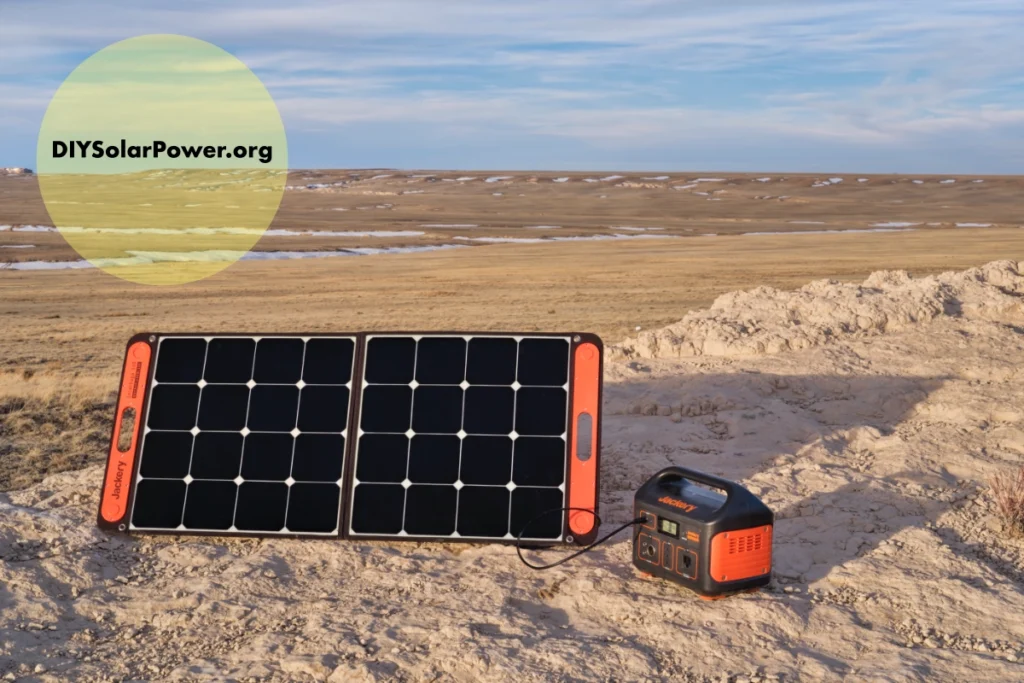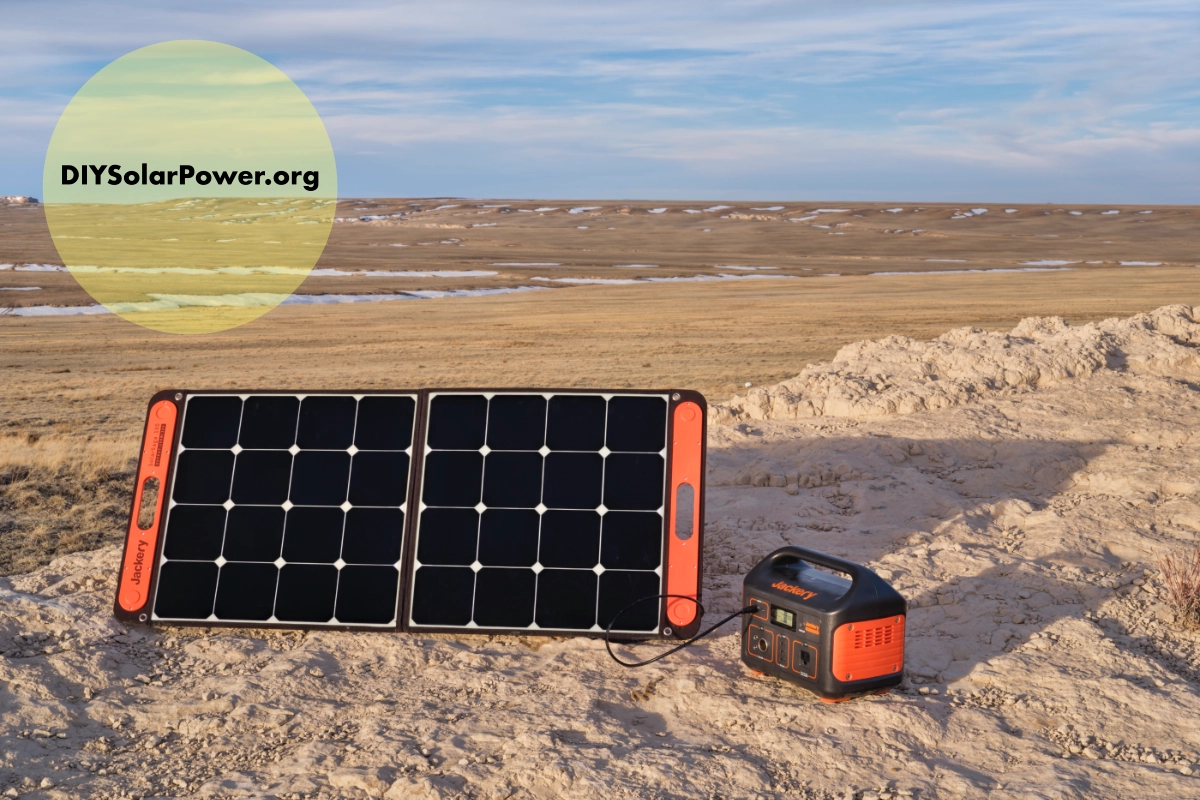In an era where energy reliability is increasingly challenged by natural disasters, infrastructure aging, and growing energy demands, off-grid energy solutions have emerged as a beacon of resilience and sustainability. As an expert in solar technology, I’ve witnessed firsthand the transformative power of off-grid systems, especially during power outages. This blog post delves into the advantages of off-grid energy solutions during these critical times, emphasizing the role of innovative technologies such as portable solar batteries, commonly used in camping, in enhancing energy independence and security.

Uninterrupted Power Supply
One of the most immediate benefits of off-grid energy solutions during power outages is the assurance of an uninterrupted power supply. Traditional grid-dependent homes and businesses face the inconvenience and potential danger of losing power during storms, wildfires, or infrastructure failures. Off-grid systems, powered by solar panels, wind turbines, or micro-hydro installations, continue to generate electricity independently of the grid. This self-sufficiency is crucial for maintaining essential functions, from keeping lights on and preserving food to powering medical devices and communication equipment.
Enhanced Energy Security
Off-grid energy solutions inherently enhance energy security. By relying on localized sources of power generation, these systems minimize dependence on vulnerable infrastructure that spans large geographic areas and is susceptible to cascading failures. Solar technology, in particular, has made significant strides in efficiency and affordability, making it a cornerstone of off-grid energy security. The integration of battery storage further bolsters this security, ensuring that excess energy generated during the day is available for use at night or during prolonged periods of overcast weather.
Environmental Sustainability
The shift towards off-grid energy solutions also aligns with broader environmental sustainability goals. By harnessing renewable energy sources, these systems significantly reduce greenhouse gas emissions and the ecological footprint associated with fossil fuel consumption. Solar panels, for instance, convert sunlight into electricity without emitting carbon dioxide or other harmful pollutants. This clean energy transition not only mitigates the impact of climate change but also promotes healthier air quality and conserves natural resources for future generations.
Economic Benefits
Adopting off-grid energy solutions offers notable economic advantages. Initially, the investment in solar panels, batteries, and other components might seem substantial. However, the long-term savings on electricity bills and the low maintenance costs of these systems paint a different financial picture. Moreover, in many regions, incentives such as tax credits, rebates, and feed-in tariffs further offset the upfront costs. As energy prices continue to rise, the economic case for off-grid living becomes even more compelling, providing a buffer against fluctuating energy markets.
Portable and Flexible Solutions
A particularly innovative aspect of off-grid energy solutions is the development of portable solar batteries. These compact, lightweight devices have revolutionized the way we think about energy on the move. Originally designed for camping and outdoor activities, portable solar batteries can power small appliances, charge electronic devices, and provide lighting in remote locations or a backyard office. During power outages, their versatility becomes even more evident. They can be easily transported and deployed wherever needed, offering a flexible and reliable power source that complements fixed off-grid installations.
The Role of Technology and Future Outlook
As we look to the future, the role of technology in advancing off-grid energy solutions cannot be overstated. Continuous improvements in solar panel efficiency, battery storage capacity, and smart energy management systems are key to expanding the reach and reliability of off-grid power. Innovations such as blockchain for energy transactions and Internet of Things (IoT) devices for monitoring and optimization further enhance the potential of off-grid systems to provide secure, sustainable, and resilient energy solutions. Not to mention new career paths for STEM-related fields.
The adoption of off-grid energy solutions during power outages not only addresses the immediate challenge of maintaining power but also contributes to a larger vision of energy independence, sustainability, and resilience. As solar technology and other renewable energy sources continue to evolve, the prospects for off-grid living become increasingly viable and attractive. The integration of portable solar batteries and other flexible energy solutions adds another layer of reliability and convenience, underscoring the potential of off-grid systems to transform our energy landscape.
The advantages of off-grid energy solutions during power outages are multifaceted, spanning uninterrupted power supply, enhanced energy security, environmental sustainability, economic benefits, and the flexibility offered by portable technologies. As we navigate the complexities of modern energy demands and environmental challenges, off-grid energy solutions stand out as a promising path forward, offering a blueprint for a more resilient and sustainable future. The journey towards widespread off-grid adoption is ongoing, but the foundation is clear: a future powered by renewable, reliable, and resilient energy systems is not only possible but imperative.
FAQs
An off-grid energy system is a standalone power system that operates independently of the public electricity grid. It typically utilizes renewable energy sources, such as solar panels, wind turbines, or micro-hydro generators, to produce electricity. These systems often include battery storage to maintain power supply during periods without sufficient energy generation, making them ideal for providing electricity in remote locations or during power outages.
Portable solar batteries work by storing energy generated from solar panels or other renewable sources. During a power outage, these batteries can be used to power essential devices and appliances, such as lights, smartphones, and small refrigerators. They are particularly useful because of their mobility, allowing them to be positioned where the power is needed most or to be easily transported to different locations.
Yes, off-grid energy systems are considered environmentally friendly because they primarily rely on renewable energy sources, such as solar and wind power, which do not emit greenhouse gases or pollutants. Additionally, the use of battery storage helps to maximize the efficiency of these renewable resources, further reducing the ecological footprint associated with energy consumption.
While the initial setup cost for off-grid energy systems can be high, they can indeed save money in the long run. Savings are realized through reduced or eliminated electricity bills, low maintenance costs, and, in some cases, financial incentives or rebates for renewable energy usage. Over time, the cost of renewable energy technologies has been decreasing, making off-grid systems an increasingly economical option.
Determining the right size for your off-grid energy system involves calculating your total electricity usage, understanding the energy production capacity of your chosen renewable sources, and accounting for storage needs. It’s important to accurately estimate your daily and seasonal energy consumption and to consider factors like geographic location, sun exposure, and weather patterns for solar systems. Consulting with a professional can help ensure your system is appropriately sized to meet your power needs efficiently.
